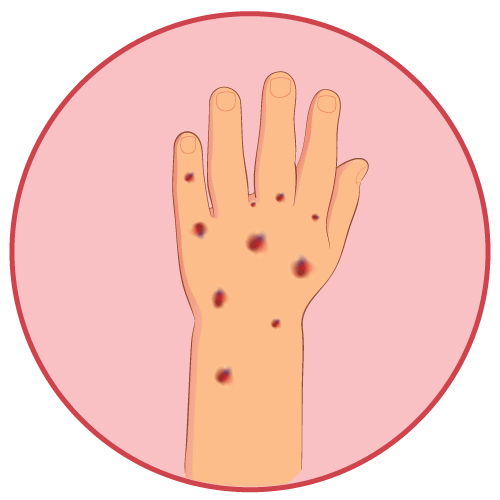| Name | Porphyria |

Porphyria
Porphyria is a group of inherited disorders that affect the production of heme, a component of hemoglobin in red blood cells.
Symptoms: Symptoms of porphyria can range from mild to severe and can include abdominal pain, constipation, vomiting, muscle weakness, and sensitivity to sunlight. In severe cases, it can lead to seizures, muscle paralysis, and mental confusion.
Causes: Porphyria is caused by mutations in genes that are involved in the production of heme. The condition is inherited in an autosomal dominant or autosomal recessive pattern.
Treatment: Treatment for porphyria depends on the type and severity of the condition. Mild cases may not require treatment, while severe cases may be treated with heme therapy, pain management, and avoiding triggers that can worsen symptoms.
Prevention: There is currently no cure for porphyria, but avoiding triggers that can worsen symptoms and seeking prompt medical treatment can help manage the condition. Genetic counseling may also be recommended for individuals with a family history of porphyria.
 Bangla
Bangla English
English